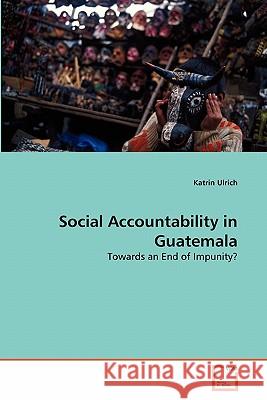Social Accountability in Guatemala » książka
Social Accountability in Guatemala
ISBN-13: 9783639342321 / Angielski / Miękka / 2011 / 104 str.
On May 10, 2009, Rodrigo Rosenberg was assassinated on a street in Guatemala City. It seemed to be just another of ca. 6,000 homicides per year, however, the next day a video appeared on "YouTube", a testimony in which he accused the Guatemalan president of his murder. Shortly after, protests dominated the country and the Guatemalan government was facing an existential crisis. Next to demanding the presidents resignation, many protesters called for an end of impunity. Sadly to say, more than ten years after the civil war (1960-1996), Guatemala is still dominated by violence, corruption and impunity, and the tensions between citizens and the state has increased. Social accountability has won importance during the last years. In Latin American countries, both vertical and horizontal mechanisms of accountability are weak, alternative mechanisms of social accountability however intend to counter these deficits. Hence, they appear to be more successful and bear promising outcomes. This analysis of the Guatemalan case builds on the theoretical framework of Social Accountability by Smulovitz and Peruzzotti and will be aimed to contribute to the ongoing discourse.











